Proxy purchasing isn’t always an easy crime for retailers and staff to tackle. C-Store looks at how store owners can prevent, spot and avoid it
An adult enters your store with ID in hand, looking to buy a bottle of something strong - nothing of concern, right? Wrong. When the adult in question is buying for someone under 18 this simple transaction can mean a whole lot of trouble for the retailer and the customer.
According to NHS Digital’s 2016 report, Smoking, Drinking and Drug Use Among Young People in England, more than half (54%) of children and young people access alcohol via friends, while more than a third (35%) have it bought for them by someone else.
The penalties of being found guilty are severe, however. The guilty proxy purchaser could receive a prison sentence of up to three months and/or a £5,000 fine, and the retailer themselves could also face fines or lose their licence.
Arjan Mehr, owner of Londis Bracknell in Berkshire, says he does all he can to make sure his staff are ready for potential proxy purchases, but it’s no easy task.
“We train our staff to be diligent at all times, because spotting proxy purchases can be difficult - all but impossible at times. But we do not want to insult our customers by questioning them when not needed. It is just so hard to find the balance.”
Indeed, questions remain over how you spot a crime that is almost impossible to see.
Dan Cocks, owner of Premier Whitstone Village Stores in north Cornwall, says: “The levels of proxy purchasing in our store have continued to increase. When customers are asked for ID or questioned over proxy purchasing it has led to intense confrontation, which is a real worry.”
Tony Allen, founder of the Age Check Certification Scheme, agrees that the biggest challenge is sifting out those customers who are making a proxy purchase from the genuine purchasers of age-restricted products.
“While retailers are ramping up their efforts to crack down on the sale of age-restricted products to under-18s with the help of schemes such as Challenge 25, the challenge of proxy purchasing remains a significant problem.”
He claims that letting adults know that proxy purchasing is an offence and carries stiff penalties can help in reducing its prevalence.
“Educating adults is important, as many don’t know they are committing a crime and could face a fine if they buy on behalf of a youngster,” he says.
“Store workers should be equipped with the knowledge to explain to customers what is breaking the law and what isn’t. If a retailer has any concerns about how well staff are doing when it comes to complying with the law, they could use a mystery shopping service which will highlight any areas of potential risk and complement the due diligence processes already in place.
“Retailers act as the front line in tackling alcohol-related harm and crime, so should take it as part of their role to engage with adults in the community to prevent this from happening.”
The Retail of Alcohol Standards Group (RASG), which focuses on work around preventing underage drinking as well as promoting high standards among alcohol retailers, has developed new guidance to help retailers prevent proxy purchasing.
The free online advice features common scenarios where proxy sales occur, as well as tips to ensure that legitimate sales are not negatively affected (see box below).
“Retailers have done a great job of ensuring that alcohol is not sold to anyone under the age of 18, but we mustn’t get complacent,” warns RASG chair Hardish Purewal. “It is important that retailers, policymakers, families and local communities recognise the ways that young people are accessing alcohol are changing, and we have refocused our efforts to ensure retailers have comprehensive advice on tackling proxy purchasing.”
She adds: “For retailers, identifying when an adult is buying alcohol for a child is difficult, but we believe the guidance we have produced will help to support retailers and their staff in identifying, preventing and deterring proxy alcohol purchasing.”
Allen suggests moving on groups of youngsters congregating outside your store can help deter proxy purchasing. “One way of tackling the problem is by politely asking the youngsters to move from outside the store so that they cannot approach older customers,” he says.
Arjan agrees: “We largely rely on customers to help us - if there is a group of children emerging or if they are being harassed to buy alcohol outside the shop, they tell us.”
For Dennis Williams, owner of Premier Broadway Convenience Store, Edinburgh, getting to know your customers is vital to combatting the problem.
“Once you gain the trust of the local residents, they start tipping you off about potential threats - for example, if there are a group of younger lads outside,” he says.
“We’ve been here a long time and have got to know everybody. Our store is very involved in the community, and as such we have begun to earn the trust and respect from them and we then begin to know and trust them.”
Harj Dhasee, owner of Nisa Village Stores in Mickleton, Gloucestershire, backs up Dennis’ views. “If you get to know your customers well enough - like we have - and know what to look out for, then you should be fine.”
Scottish retailer Donna Morgan, who owns Brownlies of Biggar in South Lanarkshire with husband Bruce, agrees about the importance of community cohesion.
“We are lucky that we are a small community, so we tend to know the locals to be wary of,” she says. “You end up getting good at learning who to look out for, as you just get to know your customers.”
However, she also has another clever tactic. “I find a good way to catch somebody out and spot a proxy purchaser or somebody under age is to test their knowledge. If they come in asking for a bottle of vodka, but don’t know any brands or makes of the stuff, then there is probably something wrong.”
Of course, despite retailers’ best efforts, proxy purchasing incidents do occur and what retailers should do when they witness them can be another problem area.
Dennis prefers to deal with incidents himself rather than involve the police. He says: “A year or so ago, I was entering the store later than usual and a group of guys were passed a bottle of something outside the store by an older guy. Instead of getting the police involved, I just banned them myself. ”
Dennis does make sure every incident is logged, though. “Unless you catch them red-handed it is almost impossible to prove. But, when it does become clear it has happened, we check our CCTV straight after the incident and record it in our refusal log.
“On top of the refusal log, our store keeps a store diary where we write down anything significant that happens in the store. When staff start their shift they check it to keep up to date with any incidents, including proxy purchasing.”
Nevertheless, some retailers are working effectively with the local authorities, including the police, to help reduce the wider problem.
Donna is one such retailer. “While we have had police incidents, I mainly speak with our local community police officer. I find that this is the best way to combat the issue. He has taken kids home before and dispersed big groups of youths - it has made a massive difference,” says Donna.
She also ensures that other local stores are made aware of potential proxy purchasers. “If we have an incident or prolific trier or proxy purchaser, then we always let the other stores in the area know, and most do the same for us.”
Community Alcohol Partnerships (CAP) aim to bring together retailers, police, trading standards, health services, education providers and other local stakeholders, to tackle the problem of underage drinking and associated anti-social behaviour. Nearly 100 schemes now run across the UK, and so far CAPs have offered training and support to more than 1,300 licensed premises, most of which are independent retailers.
CAP director Kate Winstanley says: “CAP puts retailers at the heart of local partnerships and works closely with them to tackle this issue through training, publicity and awareness-raising events.
“Being part of CAP is one of the most effective ways of demonstrating your status as a responsible alcohol retailer, and stores that engage with CAP tend to see significant reductions in confrontations in store and abuse of staff.”
Pavement ‘street art’ has been used in the battle against proxy purchasing in the run-up to Christmas, with eye-catching stencils spray painted outside c-stores in the latest CAP scheme. Originating in Sutton-in-Ashfield, over 27 CAPs have used the stencil to date.
Proxy sales may never be eradicated altogether, but by working collaboratively with other retailers and local authorities, engaging with your community and training your staff to refuse and prevent them, you can have peace of mind that you are doing everything you can to keep proxy sales to a minimum.
Top tips
What to do when you suspect proxy purchasing
The Retail of Alcohol Standards Group has compiled a list of the most common scenarios where proxy sales occur and how retailers in stores should respond:
- Child/young person selecting alcohol for an adult/parent/guardian to purchase on their behalf.
Response: If you see the adult asking the child what alcohol they want, or if the child’s behaviour suggests the alcohol is for them, refuse the sale.
- Child/young person approaching adults as they enter the store, asking to purchase alcohol on their behalf.
Response: Try to monitor what is happening outside your store, especially young people hanging around. If you see what looks like an adult being asked to buy alcohol by a person outside the store, refuse the sale to that person.
- A group of young people approaching the till to purchase alcohol, but only one person presents ID.
Response: If it appears that one member of the group is purchasing alcohol for the whole group, you should ask the whole group for identification to prove their age. Unless they all have identification to prove their age you should refuse to serve them.
For more guidance, go to www.rasg.org.uk
Joint approach gets results in scotland
The You’re Asking for It campaign was developed by the Scottish Alcohol Industry Partnership and Scottish Government with Police Scotland and representatives from North Lanarkshire Council to raise awareness of the effects and criminal nature of buying alcohol for under 18s.
After several successful pilot schemes the initiative was rolled out across the whole of North Lanarkshire in 2017.
Campaign organisers say the initiative has had a positive effect, with 38 adults being reported for buying alcohol for children, and contributing to a 51% reduction in reports of children drinking on the street.
Head of policy and public affairs for the Scottish Grocery Federation Dr John Lee says: “Retailers were at the heart of the You’re Asking For It campaign and their participation has played a key part in its success. We are now working with key partners such as Police Scotland to expand the campaign nationally.”


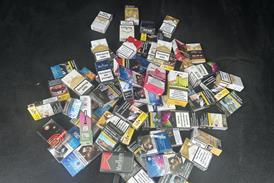

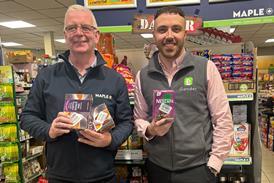



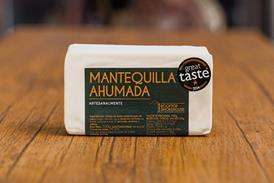
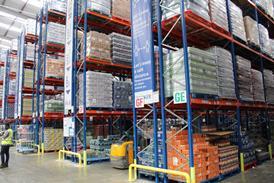
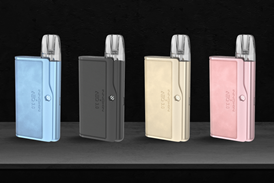
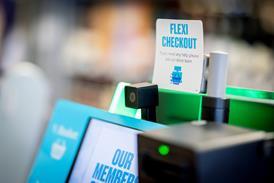
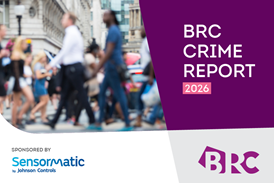
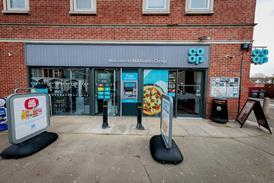






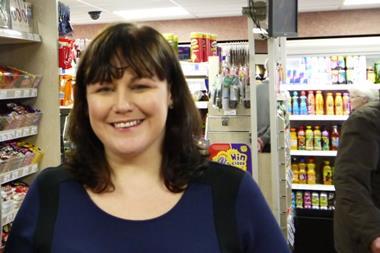
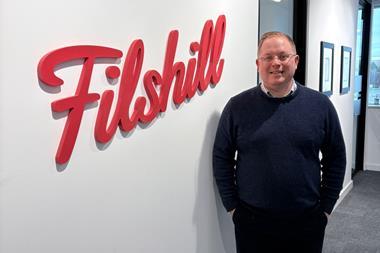


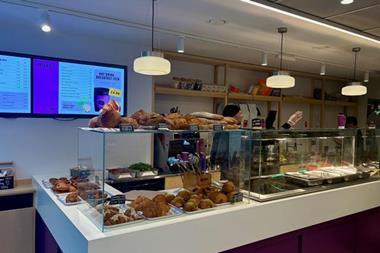






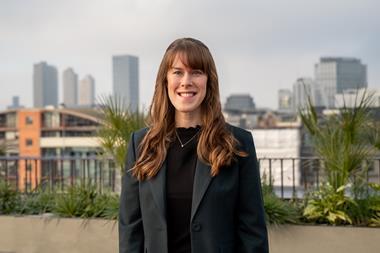
No comments yet